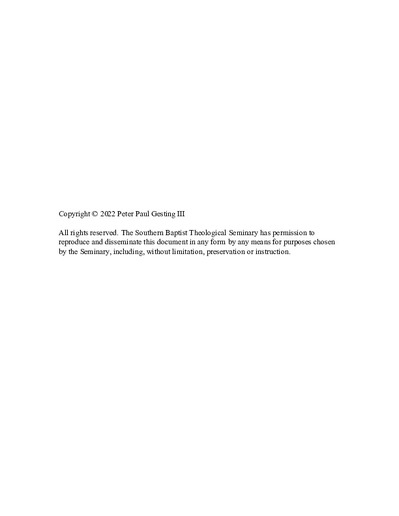Breath of Life: A Biblical Understanding of the Human–Animal Distinction and a Critique of Contemporary Theological Anthropology
Subject
Bible. Genesis--Criticism, interpretation, etc.Theological anthropology
Animals--Biblical teaching
Image of God
Abstract
“If you have no doctrine of creation, you have no doctrine of salvation.” With one pithy sentence, Peter Gentry exposes the foundational support for my dissertation. It has become popular recently in the interaction between theology and science to diminish the distinction between humans and animals. This is problematic. Starting from a basis of sola Scriptura, I look through the biblical data on humans and animals. The first chapters of Genesis are very important and are reviewed in detail. The following two chapters look at the rest of the Old Testament and the New Testament. From this data, it is clear that though humans are similar to animals, they are also distinct. Central to this distinction is the “breath of life” in man. This is an ontological distinction that includes both the physical capacities and immaterial aspect of man that are not found in animals. This includes man being made in the image of God, man’s moral stance before God, and the connection to Christ’s work as a man. Four modern theologians are reviewed who take a different methodological path with the result that they come to different theological conclusions. A final chapter brings together the biblical data with its implications for theology.

